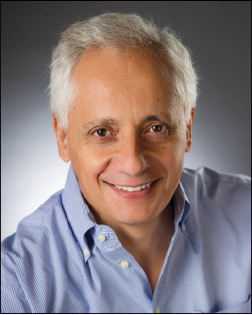
Roy O. Greep Award for Outstanding Research
Gerard Karsenty, MD, PhD
Columbia University Medical Center
Gerard Karsenty, MD, PhD, is professor and chair, Department of Genetics and Development at Columbia School of Medicine. He is being recognized for his outstanding work on the biology of bone and how bone interacts with whole body physiology.
With a longstanding interest in bone differentiation, Dr. Karsenty identified Runx2 as the master transcription factor of osteoblast differentiation and showed that haploinsufficiency of Runx2 caused cleidocranial dysplasia. Subsequently, he identified ATF4 as a transcription factor downstream of Runx2 and linked it to Coffin-Lowry Syndrome and neurofibromatosis. He also demonstrated mutations in the parathyroid transcription factor Gcm2 in patients with congenital hypoparathyroidism.
Based on evolutionary and clinical arguments, Dr. Karsenty hypothesized that there must be coordinated endocrine control of bone growth, energy metabolism, and reproduction. In the last 15 years, his laboratory has tested this hypothesis in both mice and humans. He showed that mice and humans lacking leptin despite being hypogonadal, have a high bone mass caused by the absence of leptin signaling in brain. Dr. Karsenty has also shown that bone itself is an endocrine organ regulating energy metabolism and reproduction through production of the osteoblast-specific molecule osteocalcin. He found that osteocalcin binds to β-cells in pancreatic islets, enhances proliferation of islets and insulin secretion, and that osteocalcin also promotes glucose uptake in peripheral tissues. In the testis, osteocalcin binds to Leydig cells and enhances testosterone synthesis. This occurs through binding to its cognate receptor, GPCR6A. Loss-of-function mutation in GPRC6A in men causes a syndrome of peripheral testicular failure. More recently, Dr. Karsenty has shown that osteocalcin crosses the blood-brain barrier and enhances neurogenesis and the synthesis of monoamine neurotransmitters. Consequently, osteocalcin signaling in the brain can affect anxiety, depression and regulate some cognitive functions.
Taken together, the work of Gerard Karsenty has profoundly advanced our understanding of bone as an endocrine organ. The therapeutic potential of these pathways may lead to new treatments of disease.

